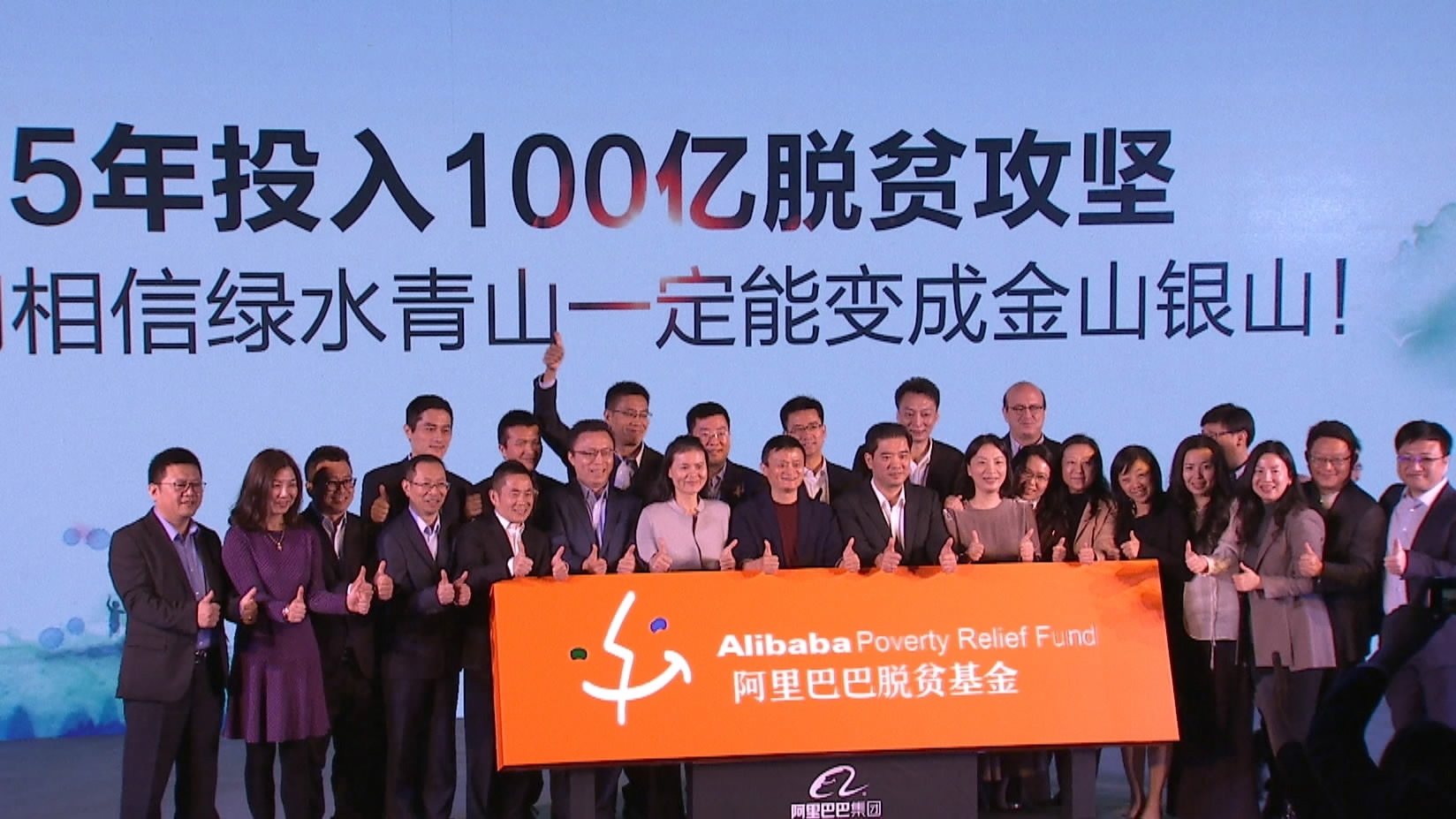
Business
19:56, 01-Dec-2017
Alibaba pledges 10 billion yuan to combat poverty in China
By Han Jie

Alibaba's Executive Chairman Jack Ma on Friday announced a 10 billion yuan (1.5 billion US dollars) Alibaba Poverty Relief Fund as part of the company's ongoing effort to promote positive social changes and improve the lives of people in China.
'We believe the end of poverty is a goal that can be achieved and our fund embodies our long-standing commitment to give back to society," said Ma, who will personally oversee the fund aimed at combating poverty in rural China over the next five years.
The fund is the latest illustration of the Hangzhou-based tech giant's commitment to philanthropic endeavors by leveraging the company's technology and existing ecosystem.
Contribution to the fund will be from Alibaba’s 36 partners and its employees. Additional support for the new fund will come from the Alibaba Foundation, a charity established in 2011 that takes in 0.3% of Alibaba’s annual revenue to support social responsibility initiatives. Poverty alleviation work will be a key focus of Alibaba Foundation for the next five years.

Jack Ma, Alibaba's executive chairman /CGTN Photo
Jack Ma, Alibaba's executive chairman /CGTN Photo
Beyond its financial contribution, the group's support will include offering the expertise and technology from its e-commerce, logistics, payment and financial service platforms to enable more of China’s rural population to utilize the power of the internet to improve their lives.
In July 2016, the Jack Ma Foundation pledged to donate 200 million yuan (30 million US dollars) over a period of 10 years to help train headmasters and educational leaders in remote villages and towns in China.
According to the National Bureau of Statistics, as people living in the countryside have gained access to the internet, e-commerce has been a boon for poverty relief in rural villages, which accommodated 43 million impoverished people as of 2016.
As one of the most successful rural e-commerce initiatives to date, Rural Taobao launched in 2014 and hopes to bring e-commerce to 100,000 villages across China by 2019.

Alibaba's previous poverty relief activities in village schools /Alibaba Photo
Alibaba's previous poverty relief activities in village schools /Alibaba Photo
Some critics, though, claim that e-commerce does little to stimulate flagging rural economies. Yu Xueyi, a former Rural Taobao franchisee, wrote in a previous commentary for Sixth Tone: “Instead of helping farmers establish themselves in the market, [Alibaba] just wants to see countryside customers buy products that were too hard to get hold of before.”
The integrated development of urban and rural areas is expected to generate investment and consumption of nearly 100 trillion yuan, which "will be the most remarkable bonus for China's development in the medium-to-long run," said Chi Fulin, head of the China Institute for Reform and Development.
While gains from structural reforms will take time, they will have a positive impact on China's economic growth in the medium term, said Changyong Rhee, director of the Asia Pacific Department at the IMF.
(CGTN's Hu Nan also contributed to this story)
1124km

SITEMAP
Copyright © 2018 CGTN. Beijing ICP prepared NO.16065310-3
Copyright © 2018 CGTN. Beijing ICP prepared NO.16065310-3